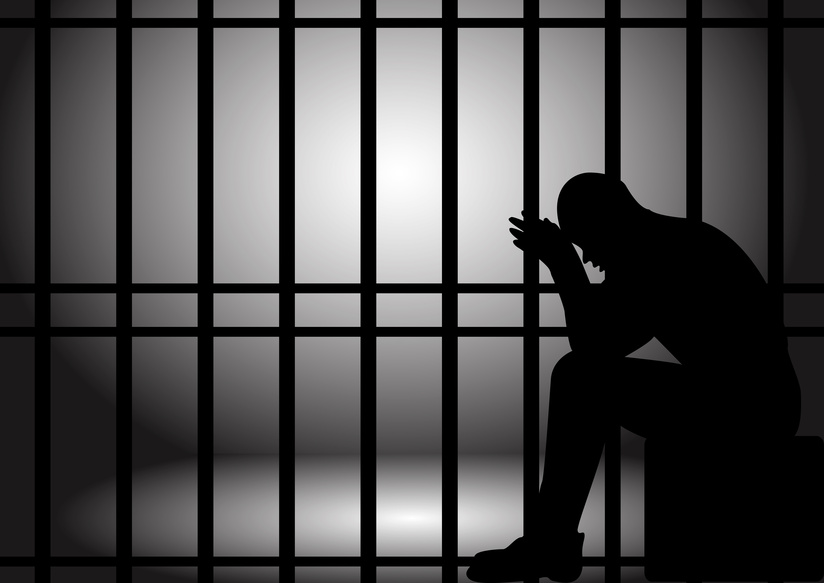- Adina Thompson
- Americans for Prosepreity
- Berny Jacques
- Claim bill
- Claim bills
- Claims Bill
- claims bills
- Disability Rights Florida
- Floridians for Alternatives to the Death Penalty
- HB 43
- Herman Lindsey
- House Bill 43
- Innocence Project of Florida
- Jennifer Bradley
- Joe Casello
- Michael Gottlieb
- Right on Crime
- Robert DuBoise
- SB 382
- Senate Bill 382
- Traci Koster
- Webster Barnaby
- Witness to Innocence
- wrongfully convicted
- Wrongly convicted

Florida is one step closer to doing right by scores of exonerated former prisoners unable to seek compensation under current state laws.
The House Criminal Justice Subcommittee is advancing legislation (HB 43) easing the process by which wrongly convicted people can get paid for the years they lost. The move marked the first time since 2020 that a version of the legislation received a committee hearing.
Florida law provides that a wrongly convicted person is eligible for $50,000 for each year he or she spends behind bars. But for 17 such people, who spent a combined 270 in prison, that compensation has been out of reach due to two barriers the bill would lower.
The first is the deadline to file. State law now requires exonerees to file a petition with the court seeking compensation within 90 days of the order vacating their conviction and sentence. HB 43 would extend that to two years.
The second is a stipulation unique to Florida called the “clean hands” rule, which denies compensation to those who also have more than one nonviolent felony.
Tampa resident Robert DuBoise, who was released after spending 37 years imprisoned for a murder he didn’t commit, had prior convictions for burglary and grand theft unrelated to the case that sent him away for decades. He’s since sought payment through claims bills, which require the help — and finite attention — of a state lawmaker.
DuBoise’s efforts have so far proven unsuccessful. HB 43 would improve his chances, according to the bill’s sponsor, Tampa Republican Rep. Traci Koster. And it’s the right thing to do, she said.
“If we as a state don’t get something right,” she said, “then we as a state need to make it right.”
Nearly all of the panel members Thursday agreed, voting 16-1 to advance Koster’s bill.
Davie Democratic Rep. Michael Gottlieb, who co-introduced the bill with Koster, called it “one of the most significant pieces of justice reform” he’s seen since taking office. Others, including Palm Beach Democratic Rep. Joe Casello and Deltona Republican Rep. Webster Barnaby shared similar sentiments Thursday.
“This is something that I believe is going to set the standard for our state and for the rest of the country,” Barnaby said. “Justice must be done. Justice is not blind today. Justice is on duty.”
Seminole Republican Rep. Berny Jacques, a former prosecutor, cast the sole “no” vote after remaining silent during a short discussion of the item.
The bill received support from several advocacy groups, including Right On Crime, Americans for Prosperity, Disability Rights Florida and Floridians for Alternatives to the Death Penalty.
Criminology professor Adina Thompson, who works as the intake coordinator for the Innocence Project of Florida, said Florida once led the country in its policies for people unjustly prisoned, but that’s no longer the case.
“In 2008, Florida (was) one of the earliest states to enact legislation to compensate someone for taking their liberty via wrongfully convicting them,” she said. “Today, 38 states have compensation laws. They have learned from our example here in Florida, and now we can learn from theirs by examining how our present law is out of step.”
By far the most moving testimony came from Herman Lindsey, who in 2009 was exonerated for a Broward County murder for which a court sentenced him to death 15 years earlier. Today, he works as the executive director of Witness to Innocence, which represents death row exonerees and advocates against the death penalty.
He also has not been compensated for his time in prison, three of which he spent awaiting execution on death row.
HB 43 and its Senate twin carried by Fleming Island Republican Sen. Jennifer Bradley “finally got it right,” Linsey said.
“I don’t think anyone in this committee (or the Legislature is) responsible for what happened, but to put this bill in the proper perspective, it helps soothe what happened,” he said.
“I’m a Floridian, and I love my state. For us to have laws that actually makes it harder for us to be compensated for what happened to us is just shameful.”
He continued, “I’m not even worried about my compensation, but I’m worried about those that come behind.”
HB 43 is to next go before the House Appropriations Committee and, if it clears that panel, to the Criminal Justice Subcommittee before heading to a floor vote. The Senate version (SB 382) still awaits committee assignments from Senate President Kathleen Passidomo more than two weeks after Bradley filed it.
Koster filed the same bill ahead of the 2022 Legislative Session with support in the Senate from Alachua Republican Sen. Keith Perry and former St. Petersburg Republican Rep. Jeff Brandes. Both the House and Senate versions of the bill died without hearing.
Those bills were nearly identical to legislation former House Minority Leader Bobby DuBose, a Broward County Democrat, filed in the 2020 and 2021 Legislative Sessions. The 2020 version died on the House floor.
DuBose told Florida Politics in October 2021 he was blindsided when Koster filed her version of the bill, which took over a criminal justice fight particularly important to Florida’s Black community that he worked on since taking up the cause after Tampa Bay area Sen. Arthenia Joyner left office.
“Representation matters, and I wish I’d gotten a call before this was filed,” he said. “It’s important that this bill passes, but I’m a little bothered by how this has unfolded.”



